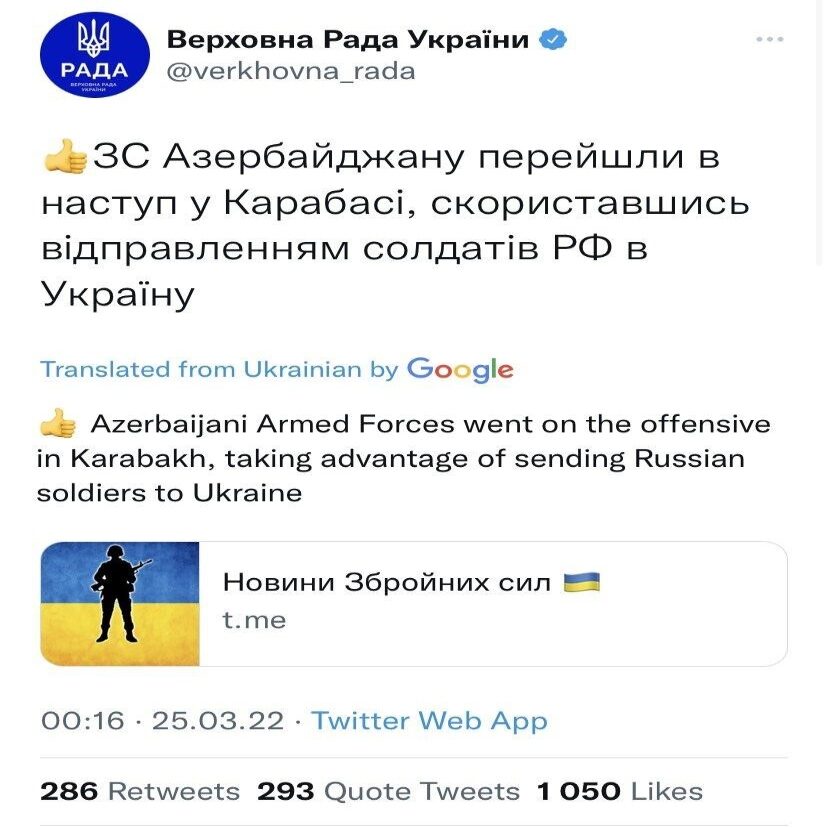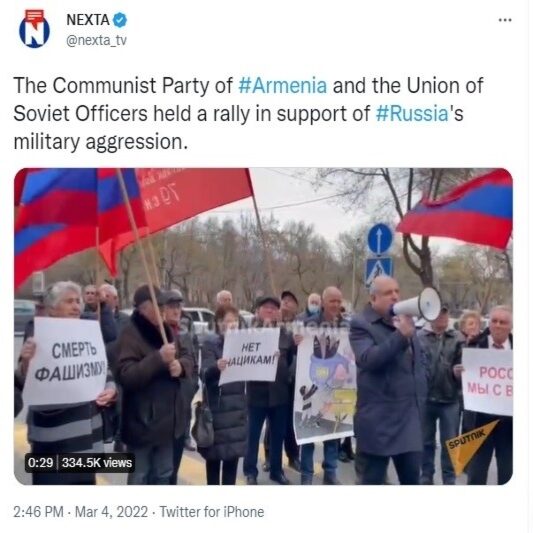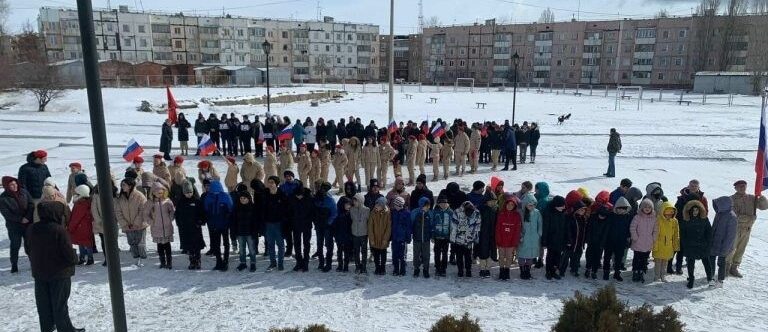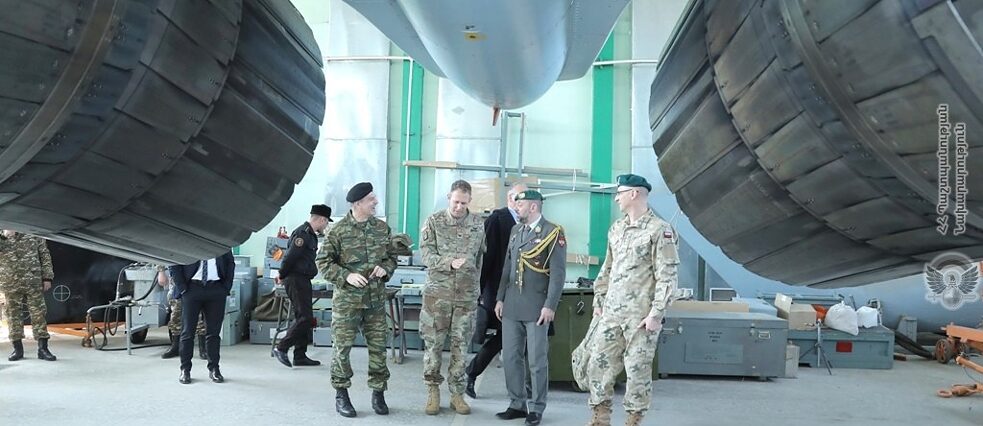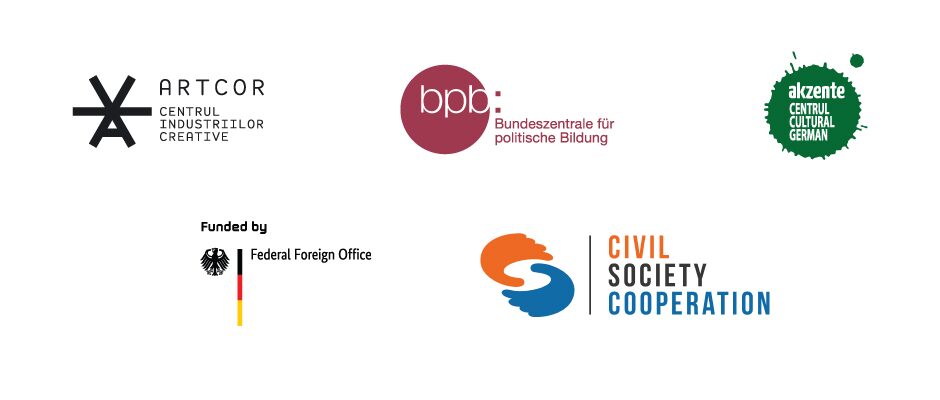“Operation Z”. How media propaganda represented Armenia as Russia’s supporter
This article was produced in the framework of the "Unprejudiced" project with the support of the Eastern Partnership Programme and the German Federal Foreign Office in autumn 2022.
Author: Lusine Voskanyan
Armenia’s official and non-official view on the Russian invasion of Ukraine was influenced by its own complicated relationship with Russia. Russia controls the country’s strategic infrastructures such as gas distribution and railways. In addition to it, a Russian military base is located in Gyumri, the second biggest city in Armenia, near the border with Turkey. On the other hand, the second war in Nagorno Karabakh two years ago, and the clashes in Armenia in 2021 and 2022 caused a huge disappointment in Russia. Armenia did not support Russia when the war broke out in Russia. However, Kremlin propagandists and pro-Kremlin groups launched a campaign in social media portraying Armenia as an ardent supporter of Russia’s invasion of Ukraine.
Context: Post-war Crisis in Armenia
The political situation in Armenia was highly affected by the war in Nagorno Karabakh in 2020. At the beginning of the war, Russia had the main role as a mediator between Armenia and Azerbaijan. The war ended with a defeat of the Armenian side and, as a result, it was forced to accept painful concessions such as returning control of the regions surrounding Nagorno Karabakh and placing Russian peacekeepers inside Karabakh to ensure the security of the local Armenian population. The Armenian side lost 4000 soldiers, thousands more were wounded.
In the following months, Armenia went through a political crisis. Frequent military clashes with Azerbaijan already inside the territory of Armenia, on the other hand, made the country extremely vulnerable in the context of prospective geopolitical and political changes.
When Russia invaded Ukraine, the echo of the recent war and its disastrous consequences was still present and many experts assumed that the perspective of a full-scale war between Armenia and Azerbaijan became even more likely.
The response of the Armenian government to the Russian invasion of Ukraine
Although the neutral position of Armenia’s government over the invasion of Russia to Ukraine was criticized abroad, it seemed to be the only available option. Despite the highly tense situation in the region and Russia being the only strategic and military partner, Armenia has (at least on paper), official Yerevan did not support Moscow in the military aggression against Ukraine.
On 22 February 2022 when the president of the Russian Federation Vladimir Putin announced Donetsk and Luhansk recognition, the Armenian Foreign Ministry released a statement pointing that “Recognition of Donetsk and Luhansk is not on Armenia’s agenda”.
Armenia's neutrality was reflected in its reactions during United Nations General Assembly’s votes in March and in October. When the UN General Assembly deplored “in the strongest terms” Russia's invasion of Ukraine, Armenia abstained. The same was seen on October 12, 2022, when Armenia abstained from voting on a General Assembly resolution condemning Russia's proclaimed annexation of Donetsk, Luhansk, Kherson, and Zaporizhzhya oblasts. However, it is notable that prior to the invasion, official Yerevan voted against UN resolutions condemning Russia’s annexation of Crimea.
Public reaction to Russian invasion to Ukraine
When the war broke out in Ukraine, the psychological trauma and other consequences of their own war were still fresh in Armenian society. Having experienced war recently, the majority of the population was devastated by the news of the war in the other post-Soviet region.
However, others remembered how the Ukrainian parliament celebrated the success of the Azerbaijani Army in Nagorno-Karabakh.
Moreover, some high-level Ukrainian politicians stated that opening new fronts against Russia, for example in Nagorno Karabakh, would have a positive impact on Ukraine. Obviously, such statements had their influence on public opinion on the Russian-Ukrainian war.
Nevertheless, protest actions against war in Ukraine were held in Yerevan, organized not only by locals but also by re-locators from Ukraine, Belarus, and Russia.
“Operation Z” in the Armenian media
Although the Armenian authorities never made statements supporting Russia in the war against Ukraine, several pro-Kremlin groups in Armenia and pro-government groups in Russia attempted to portray Armenia as a full supporter of the invasion. A media campaign that Armenian fact checkers call “Operation Z”.
The campaign had two goals. First, to create an impression that Armenia supports Russia targeting Russian society. Secondly, these incidents are being used by Azerbaijani and pro-Azerbaijani lobbyists and bloggers to appeal to the international community to sanction Armenia.
Independent Yerevan-based fact checker Ani Avetisyan says that the main propaganda theses were spread during the first months of the war when the situation in Ukraine was the main topic in the media.
“For some time Telegram channels and certain individuals including Margarita Simanyan* and Mika Badalyan** were using their resources to show that Armenia as a state supports Russia sending ammunition and humanitarian help. Mika Badalyan** even personally initiated fundraising to send help to Donbas and presented it as a “nationwide movement”,- says Avetisyan.
The first major case was the video of hanging a banner with the inscription “Russian Army” from Kievyan Bridge in Yerevan. The idea of such a campaign was so unpopular, that social media claimed that it was fake. However, the fact-checkers from Media.am found out that the poster was hung and quickly removed on February 27. The poster can be seen from security camera footage of the area. The action was carried out early in the morning and lasted for 9 minutes, from 8:16 am until 8:25 am. The poster was removed so fast that even local residents did not see it.
Although the process and the video of hanging the banner were suspicious, it was widely circulated on Twitter and in international media. For example, Belarussian Nexta posted it but later deleted it.
“Videos about hanging flags and posters were shared through telegram channels and tweets so intensively that they had a certain influence on public opinion about Armenia. In Twitter, Azerbaijani lobbies would also share those materials and represented them as a reason to sanction Armenia and used a basis for it”, adds Ani Avetisyan.
Nexta also shared a post by “Sputnik Armenia” about the rally supporting Russia organized by the small Communist Party in Yerevan. The Belarussian media outlet did not mention that about 20 people participated in the rally and that the party does not have any political influence.
“Such cases did not reflect the opinion of the population of Armenia, because even after those so-called rallies or demonstrations, they did not become the topic of the mainstream media and did not receive reactions. It had a clear goal: to form a negative opinion about Armenia in the foreign audience or to form show Russia’s audience that it’s not alone and Armenia supports them. In any case, these videos or rallies were not organized for local Armenians”,- says the Yerevan based fact-checker.
Another such incident was at Gyumri school No. 19, where the students were forced to line up forming the letter Z in support of Russia. The school operates next to the Russian military base in Gyumri, and children of military base employees, military personnel, and Russian diplomats, as well as local Armenian children, study here. The school is financed by the Ministry of Defense of Russia, it is guided by the legislation of the Russian Federation. The pictures of students caused outrage on social media because mostly it was shared without context and missing out the information that these are the children of military base personnel.
On 28 March, the Azerbaijani outlet Haber Global operating in Turkey, citing Turkish intelligence data, claimed that the Su-30 fighter jets acquired by Armenia in recent years were sent to Russia, and from there to the frontline in Ukraine.
Despite the denial of the Ministry of Foreign Affairs of RA, the news spread in international media. As a result, the Ministry of Defense of Armenia invited the military attachés accredited in the country to the military base of the Ministry of Defense of the Republic of Armenia, where the fighter jets were stationed.
These are only a few examples of how media manipulations and propagandists attempted to create an image of Armenia as a supporter of Russia. In reality, both official and public opinion on relations with Russia is going through dramatic changes as a result of the war in Nagorno Karabakh (2020) and recent clashes inside Armenia.
*Editor-in-chief of the Russian state-controlled propaganda media organisations RT and Rossiya Segodnya. In late October, she stated that she was banned from Armenia.
** Mika Badalyan, the leader of the “Liberation” movement, blogger. He runs a Telegram channel.
